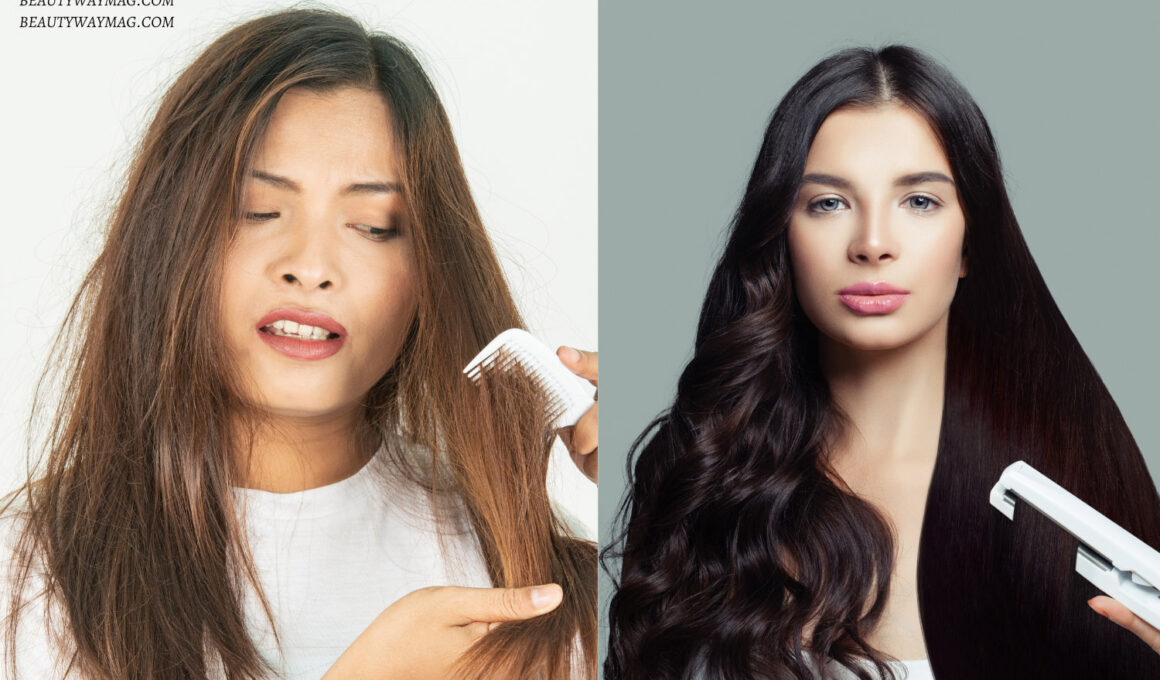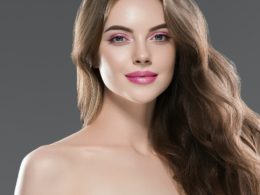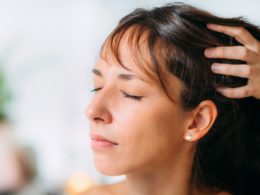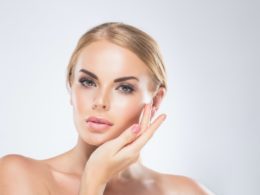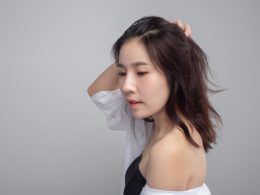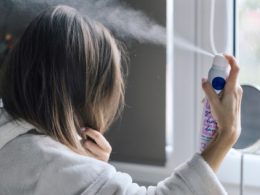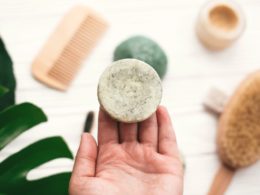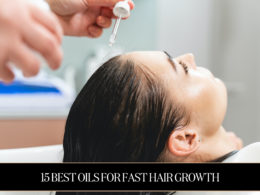Table of Contents Show
Can you stop thinning hair? Yes, you can regrow thinning hair; however, to do that, you need an ultimate and definitive guide on the causes and then how to stop it. Thinning hair can very well be described as annoying and can happen for various reasons; it is also a natural part of growing old, which is more common in males than females.
It is also more common for women to lose hair after giving birth, usually not up to 3 months after delivering. Other common causes include the use of harsh hair products or heat tools like your dryers. Understanding the cause of your thinning hair is the first step to stopping hair loss.
Hair loss can be quite an emotional experience, and the truth is you can’t change the size of your hair follicles, especially if you are born with it, but there are ways you can stop the thinning and add some volume.
As people get older, thinning hair can become inevitable. Fortunately, some treatments can help you manage hair loss.
Healthy and thick hair sure has a way of enhancing one’s appearance, and it is described as the center of our identity. So, if you are experiencing thinning hair at a rapid rate, here is a guide on how it can be stopped.
What Are The Causes of Thinning Hair?

Thinning hair can happen at a really fast rate that can make you less obvious to the cause. Thinning hair can be permanent or temporary based on the factor that contributed to it, and although baldness is common in men, it can happen to anyone. It can also come on suddenly, or there could be gradual thinning.
Typically, people lose 50 to 100 hair daily, but this is not noticeable since new hair is growing simultaneously. But if you are distressed by persistent hair loss or residing hairline, it is not entirely clear what causes thinning hair, but here are some of the notable causes behind it.
- Hormonal changes and medical condition
- Vitamin deficiency
- Hairstyles and treatments. Hairstyles that are arranged in a way that pulls at your roots, this type of hair loss is called traction alopecia
- Over-processed scalp hair can lead to breakage with time
- Hereditary condition
- Significant rapid weight loss
- Medications and supplements. Hair thinning can be a side effect of certain medications and supplements for conditions like cancer, heart problems, depression, or arthritis.
How to Stop Thinning Hair – The Complete Guide
Any girl or woman at any age can be affected by thinning hair, but it is more common in women within the 40-year range. These women just had babies, women who just had chemotherapy, or menopausal woman.
There are many home remedies that can be used to stop hair thinning and some routine adjustments that can be made although not all of them have scientific backing. But it’s important to have realistic expectations and know that results can take months to show.
1. Scalp Massage
The importance of scalp massage is not discussed enough, as this process can easily stimulate hair growth. Massaging the scalp can also help promote blood flow which in turn encourages the growth of your hair. Using essential oils such as peppermint oil mixed with a carrier oil for your scalp massage can also provide extra benefits.
To massage your scalp, use the fingertips of both hands to apply medium pressure to your scalp, moving in small circles. Work your way gently across your scalp to cover all the areas, and try to massage for at least 5 minutes several times a day.
This is quite affordable and accessible, but it won’t address thinning hair caused by underlying conditions
2. Multivitamins
Using multivitamins is a better way to restore thinning hair caused by nutritional deficiencies. Since your hair depends on your overall good health, this might help stop hair loss. This can also help strengthen brittle hair and is likely to promote the absorption of hair-boosting nutrients.
First, consider taking a blood test to help determine if you have nutrient deficiency. Your doctor can further recommend a daily multivitamin if you are low in several key areas.
3. Eat Hair Healthy Foods
We agree that your hair growth depends on your overall health; hence, you should consider eating more healthy foods. Specialists recommend following a balanced diet with protein, fats, vitamins, and omega-3 fatty acids. Taking zine, iron, and biotin supplements are also shown to improve hair texture and caliber.
Foods containing healthy hair are Brazil nuts, fatty fish, eggs, walnuts, fortified foods, and dairy products. Combined with hair supplements, you will likely see results in a month.
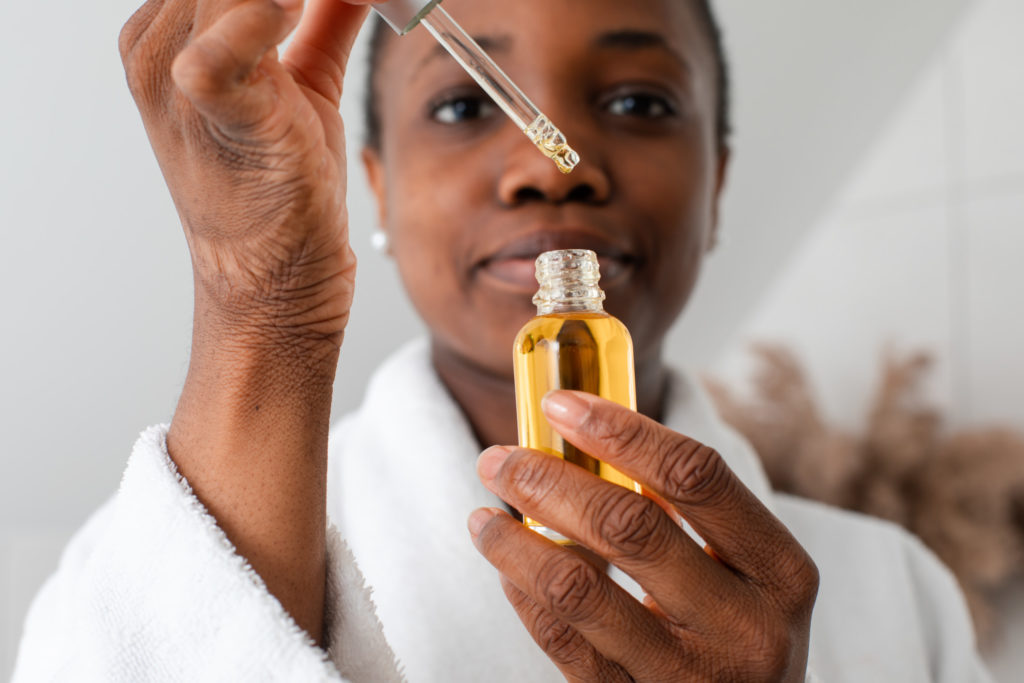
4. Essential Oils
Thinning hair is not a quick-fix condition, and how fast it regrows is often based on the cause. However, essential oils are a vital hair care treatment that will come in handy. Essential oils have been used over the years to spur healthy hair growth; it is known for their stimulating, balancing, and calming properties.
Some studies suggest that essential oils such as peppermint, rosemary, tea tree, lavender oil, and more can increase blood flow to each follicle, stimulating hair growth whether applied solo or infused into hair care products. Read your oil label instruction to know how to dilute it.
5. Anti-Thinning Shampoo
Your doctor might prescribe an anti-thinning shampoo for you, which provides volume to your hair so it looks thicker and contains vitamins and amino acids that can help promote a healthy scalp. Anti-thinning shampoo can further help exfoliate your scalp, eliminating build-ups that weigh your hair down.
Look for key ingredients such as biotin, ginseng, minoxidil, and keratin; they can help improve moisture, strength, and hair growth.

6. Laser Therapy
Laser therapy is another common way to stop thinning hair. This process is available without a prescription and can be done at home, although it is quite expensive and can take months to get any results.
The process involves treating your hair follicles with the use of laser technology, it sends light particles into your called photons into your follicles, thereby helping them grow.
This hair regrows method is used by skin specialists and dermatologists. A similar treatment is oral or injected medications which are meant to reduce hormones and inflammation causing thinning hair.
7. Hair Care
Simply taking care of your hair can help stop thinning hair. While you should also consider reducing stress if you smoke, consider quitting as well. Practicing a good hair care routine can go a long way in restoring your hair, this also involves taking care of your overall health.
To take care of your hair, reduce the use of heat styling tools like a dryer. Comb and brush hair only when needed, avoid hairstyles that pull at your root, and use only gentle hair products.
Frequently Asked Questions
Can thin hair become thick again?
There are ways to maintain the health of your hair and stop it from becoming thin, but the truth is you can’t change the size of your hair follicles, especially if genetics then there is no product that can alter that. You can keep your hair from getting thinner, and it is possible to get thicker fuller hair, but it all depends on your genetics and hair follicles.
Can thinning hair grow back?
Yes, thinning hair can grow back, but it all depends on the reason it became thin in the first place. People who experience hair loss as a result of stress, nutrient, or any non-genetic reasons should have it grow back with the right treatment.
What supplements can I take to stop hair loss?
According to experts and research, the best supplements that can be taken for hair loss include; Biotin, vitamin C, Iron, vitamin D, and B vitamin. Biotin and B vitamins are considered the best vitamins for stopping hair loss.
Which food is good for hair thickness?
Foods loaded with beneficial compounds and vitamins for getting thick hair and re-growing your hair are Eggs, Sweet potatoes, Avocados, Berries, Spinach, Nuts, Fatty fish, and seeds.
Wrapping Up
Thinning hair will always be a source of concern for anyone experiencing it due to how vital hair is to one’s identity. However, know that it is common for one to lose hair, but you should also talk to your doctor if there is persistent hair loss or sudden patchy hair loss is discovered.
The home remedies and treatments above can help improve the overall health of your hair, boost hair growth, and stop thinning hair. Still, it is highly recommended that you talk to a healthcare professional if you have concerns about the sudden loss of hair.

